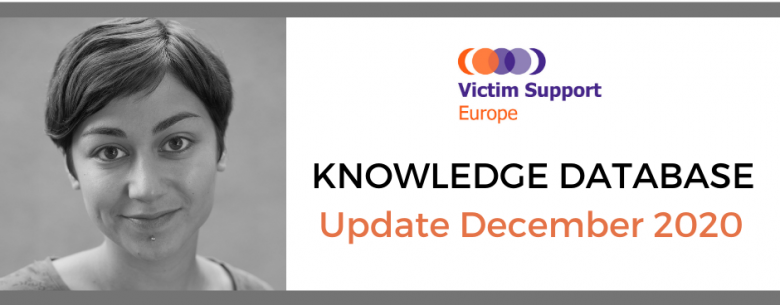
Check Out the Latest In Our Knowledge Database!
This is a monthly update from our Knowledge Database editor Sasha Boychenko. If you would like to submit publications to the Database, please reach out at vse@victimsupporteurope.eu
Following the terrorist attack in Vienna in November 2020, this month’s publications on the Knowledge Database focus primarily on terrorism and mass victimisation.
Specifically, many of December’s additions to the Database are themed around coping techniques and other useful self-help tips for victims and witnesses of terrorist attacks and other mass victimisation events. The tips range from physical and mental health advice and concern people’s personal, family, work, and financial, lives. Finally, many of the publications deal specifically with children and teenagers and ways in which their parents can best support them and talk to them about mass violence incidents.
Various publications come from FBI – such as leaflets and brochures on coping techniques for survivors, including practical advice for injured survivors specifically. These practical tips include delaying making major decisions, simplifying one’s life for a while through pausing non-essential activities, taking care of one’s mind and body through eating well, and moving enough, keeping a phone number of a close friend nearby, and avoiding psychoactive substances, among others.
Other publications come from Weisser Ring Germany (a VSE member), NHS (England’s healthcare system), and various governmental and non-governmental institutions equipped to deal with these issues. There is also information on how to choose the best-fitting mental health professional, put together by FBI.
Publications dedicated to supporting children are authored by non-profit organisations such as Voices of September 11th, NATAL (a VSE member), and National Mass Violence Victimization Resource Center (US). The advice shared for parents who are communicating with their children includes answering children’s questions honestly, explaining the events which took place using words and ideas they can understand, looking for signs of anxiety or fear, and to model good coping mechanisms for the children.
These documents are nearly universal, applicable for individuals and families around the globe. We hope you find them useful and share them within your networks as well as directly with victims your organisations support whenever necessary.
